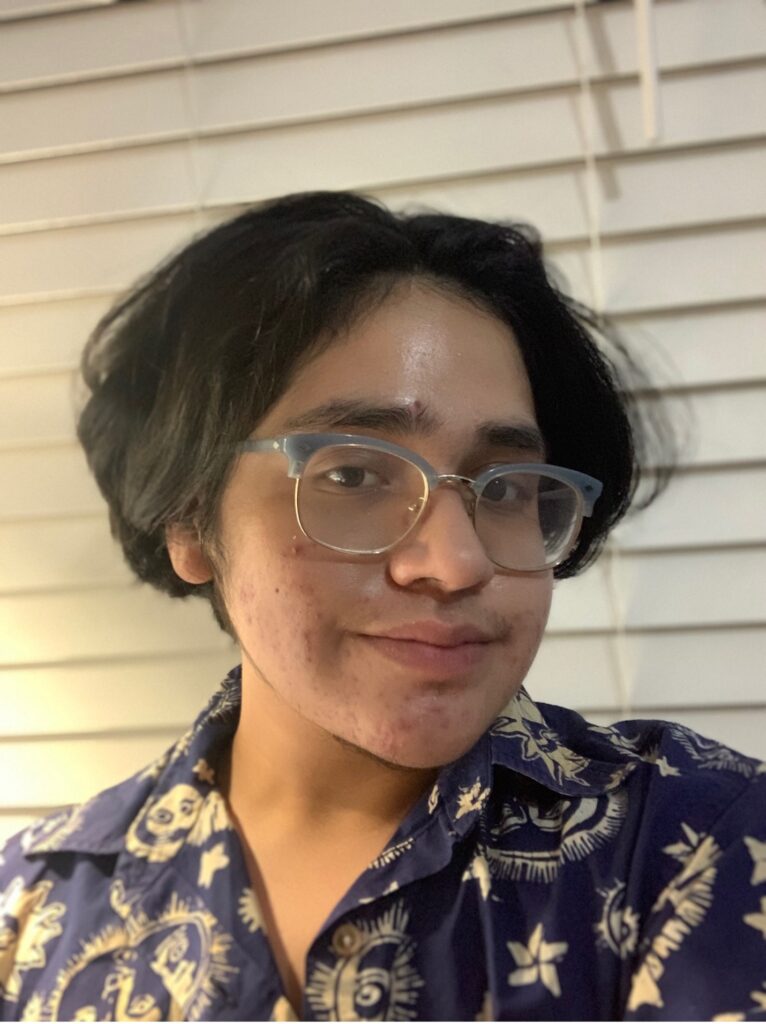by Evan Montelongo
I didn’t realize I’d have to go to college to learn how to use the words “clean” and “dirty.” Turns out, the dictionary definitions leave a lot to be desired when it comes to supporting health and wellness in the LGBTQA+ community.
Growing up in a small, rural Texas town, I’ve never before had an opportunity to work both for and with fellow members of the LGBTQA+ community. I will forever remember my internship at Kind Clinic as an opportunity to connect with my community, and even learn some new words.
Kind Clinic is a nonprofit sexual wellness and gender-affirming clinic specializing in providing access to HIV medication such as PrEP and PEP, STI testing and treatment, HIV testing and care, and gender-affirming care for marginalized communities. This organization was founded in 2015 and has provided accessible care for everyone “regardless of race, creed, gender, gender identity, or sexual orientation without judgment or stigma” at little to no cost ever since. I was a part of the clinic’s Outreach program, which specializes in STI testing and treatment. The Outreach program provides free drop-in testing during the week and on the weekends, they take their testing on the go to the University of Texas at Austin campus and other places frequented by the LGBTQA+ community.
On my first day, I was given hours of online training that I needed to complete before doing anything hands-on. The training really put into perspective how much work the clinic does as well as the current needs of the LGBTQA+ community. After finishing my training, my first official “task” at the clinic was to run the reception desk and check in both new and returning patients. It was amazing seeing the number of people coming in who care about their sexual health, especially as seeking sexual health care is still pretty stigmatized today. I was pleasantly surprised at the language used in both clinic conversations and documents regarding STI testing/treatment. For example, we refrained from referring to someone as “clean” if they don’t have an STI as it insinuates that someone with one is “dirty.” I never realized how our use of language alone could make a difference in destigmatizing sex.
Not only did I work reception, but I was also taught how to work in the clinic’s lab. Here I made labels for vials of samples, pipetted urine into said vials, and properly packaged these samples for shipping off to get processed. I thoroughly enjoyed working in the lab as it gave me the time to talk with my coworkers and get to know both them and the clinic’s history better.
My other duties included taking inventory of supplies and making harm reduction, pleasure, and hygiene kits for the clinic to give out. I was honestly pretty surprised that Kind Clinic provides kits with not only sexual wellness goods, but also provides necessary toiletries and supplies to keep drug users safe. This was my first time seeing anything related to harm reduction, as opposed to the push I always see for drug users to “simply” quit using. Going through and making each kit has shifted my perspective on what it actually means to help people stay safe without judgment. Even though I have now seen enough condoms to last a lifetime, I loved making these kits and becoming familiar with the needs of our community.
My favorite part about my time with Kind Clinic has to be the staff. As someone who has multiple family members in the medical field, I’ve heard my fair share of horror stories about annoying coworkers. However, I could not have asked for better workmates at the Kind Clinic. The staff created such a positive and uplifting environment not only for the patients but also for each other. I really appreciated the amount of help I received at the clinic and was constantly amazed at the level of support everyone offered one another. The people working there were also hilarious, and it was so lovely to be able to work in a space where I knew without a doubt that I would be fully accepted and included.
At KIND, I learned, and would like to share with you now, a few ways to be an affirming ally to both friends and strangers:
Use destigmatizing language. Refrain from using terms such as “clean” or “impure” when talking about having (or not) an STI, as they imply that someone with an STI is “dirty.” Many people feel embarrassed or ashamed about having an STI and may avoid seeking treatment or having conversations with partners due to sexual stigma. By changing the way we talk about STIs, we can dismantle the stigma they’re commonly associated with and create a healthier community.
Inform yourself. Many different gender and sexual identities exist, and it’s important to be familiar with them so we can both understand each other better and know how to respect these identities properly. Get to know what’s important to the LGBTQA+ community and get involved! And don’t forget to ask for what pronouns someone uses!
Being surrounded by—and providing care for—those in the LGBTQA+ community was a fantastic experience I will carry wherever the future takes me.

Evan Montelongo (he/him) is a second-year undergraduate student at the University of Texas at Austin majoring in Radio-Television-Film. He currently works as a comic artist and illustrator at the Daily Texan and is a member of the Animation Department at TSTV. After graduating, Evan hopes to work in animation production. In his free time, Evan loves drawing, watching movies, and playing video games. He dearly misses his pets back home.
